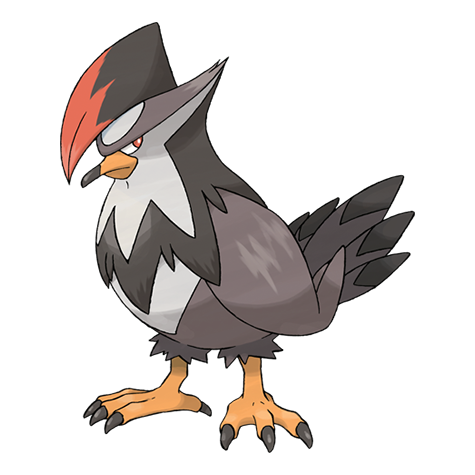I heard something to do with Nitrogen and …cow farts(?) I am really unsure of this and would like to learn more.
Answer -
4 Parts
- Ethical reason for consuming animals
- Methane produced by cows are a harmful greenhouse gas which is contributing to our current climate crisis
- Health Reasons - there is convincing evidence that processed meats cause cancer
- it takes a lot more calories of plant food to produce the calories we would consume from the meat.
Details about the answers are in the comments
The core issue is soil quality. Without sufficient organic content in the soil, all our food, whether it be plant or meat, has drastically reduced nutritional content meaning we need to consume more for the same effect. We’re heading for a global food shortage because of the one key issue. Healthy soil also sequesters an enormous amount of carbon from the atmosphere. So instead of fighting the beef vs tofu wars, we should be focusing on encouraging agricultural practices that enrich soil rather than destroy it. We have about 50 years of crop cycles left before the majority of arable earth turns to sand.
Shifting your diet to be more plant-based is a good idea, but it’s not the crux of the issue.
Bam!
because you have to kill a living thing for it
I swear there was another reason why the practice was considered bad. Something about nitrogen and sustainability. I never really understood that part, hence the question.
I think that one was the cows burp methane, which is a greenhouse gas. So if you apportion the greenhouse gas emissions over the delicious hamburgers, you make more climate change by making a cow burger than a veggie burger. So we should cease the production of cows as part of our attempt to not make our planet terrible. And buying cow burgers to eat is contrary to the goal of ceasing cow production.
There is a lot of waste from the agricultural process that needs to be considered as well, like fertilizer run off into rivers, etc.
Which applies even more to meat production. You have to grow massive amounts to feed livestock, more than if we just grew and ate the food directly.
Exactly my point. We can’t just look at the meat. We have to look at the entire process.
Even if we stopped eating meat agriculture in its own right is a big problem.
If we stopped eating meat we’d have to grow a lot more crops to make up for it which will only cause other problems instead of fixing the root cause.
If we stopped eating meat we would have 50% more land for farming human food than we currently do (we currently use 33% of cropland for feed alone). Raising cattle is not efficient at all, it is a waste of energy and land and water.
It’s not like the land we used to grow the feed we’ll just evaporate. This is why so much lobbying has gone into pushing the narrative that we all need to eat a ton of red meat.
I am not disagreeing. My whole point is that agriculture in itself is a problem. Simply getting off meat doesn’t solve the problem.
We need a way to make agriculture not so wasteful and damaging to the environment. Cutting out meat reduces the need for agriculture but doesn’t eliminate it. As long as agriculture is around we will be destroying our environment.
Downvote me all you want.
So we shouldn’t reduce the problem on one front because we can’t get rid of the impact completely?
Without agriculture we would all starve, you can’t say the same for beef.
Why not reduce the damage that agriculture causes AND reduce the impact and scale of beef production?
All I hear is excuses to keep eating factory-farmed hormone-laden beef.
So we shouldn’t reduce the problem on one front because we can’t get rid of the impact completely?
I literally never said this. You are saying it.
All I hear is excuses to keep eating factory-farmed hormone-laden beef.
I literally never said this either. You’re pulling this out of your ass.
There is nothing wrong with pointing out the flaws of current day agriculture. Sounds like you just want to argue and you’re injecting your own dialogue to accomplish that.
animals are fed parts of plants that people can’t or won’t eat. all of the studies about the ecological impacts ignore this fact and then attribute the water used to produce, say, cotton to beef.
I’m not arguing that we should eat animal feed, but rather use that land to grow food for humans
we already do that. for instance, soybeans. over 80% of the global soy crop is pressed for oil for human use, but then the industrial waste is fed to livestock.
It’s funny how nowadays when a cow eats what is naturally supposed to eat we charge double price for it and consider it some specialty. It’s no wonder they have to jack them up with hormones.
cows mostly eat grass. the grain finish is just to fatten em up
I think everything has been addressed. I just wanted to clarify that the methane is from cow burps, not farts.
One other thing I think is worth mentioning: meat is good, but it’s not even that good. As a child I was a very picky eater and largely carnivorous, having to purposefully supplement the occasional vegetable. Now I’m essentially pescatarian because honestly, most meat isn’t really good. It can be low quality, bland, and boring. Innovative chefs seem to be realizing that, and I personally agree that Eleven Madison’s food is better now that it’s fully plant based.
Meat can be such a crutch, and when it’s not, it requires quality cuts and good preparation. And yet many people would rather eat a tough, poorly seasoned mediocre steak than a vegan dish, even if it’s genuinely a bad experience, but I’m pretty sure it’s a misplaced pride thing.
Finally, working with meat can be a lot harder than vegetables, especially chicken. Dominique Crenn has a wonderful cookbook featuring incredible plant based dishes, and of course Atelier Crenn is one of the most convincing arguments of plant superiority.
I find that, for those who simply don’t care about the world around them, an appeal to taste and ease is far more effective than trying to introduce humanity. It also prevents the knee jerk reaction to plant based diets— “sure, I like my meats too, but it’s just too boring/doesn’t taste good enough” shifts the discussion from tribalistic hatred of vegans to something that directly impacts them, largely the only way to actually get some people to listen.
A lot more water to make the food for cows than what humans consume.
A lot more food to feed a cow than what it would take to feed the human the same type of food.
And the growth of that food to keep feeding these animals in large batch is pretty much creating dead areas of land that gets ruined if it’s not carefully monitored. And the run off into the water supply is a problem. This is why industrial level of farming is really really bad for the environment.
You’re supposed to move cattle around in pastures for regrowth and not entirely decimate it. The capitalists do not care about that until a court summons tells them to care about that.
Currently there’s some better methods however the consumption stays high.
Health wise : all meat diets (meat at every meal) can produce issues in your body.
Cured meat or heavy salted meat can lead to heart issues and kidney stones.
You should mix in some fruit and vegetables and maybe even substitute some entire meals so that meat is consumed only a few times a week if only for your body’s sake. Your taste buds aren’t the same organ as your heart. They aren’t the organs that make your body stay alive.
deleted by creator
The point is that you can grow a plant based diet for a human for much less resource cost than you could for a cow.
Multiplied by the amount our current meat industry runs at and you get decimation of large swaths of lands, much higher emission of greenhouse gasses, etc…
animals are fed parts of plants that people can’t or won’t eat. all of the studies about the ecological impacts ignore this fact and then attribute the water used to produce, say, cotton to beef.
Source?
poore, nemecek 2018
Maybe I’m misunderstanding your argument- as that publication back what we are saying about the beef industry having a massive impact on the environment
read the methodology and you will see cottonseed is fed to cattle, and the water to grow that cotton is attributed to cows instead of the textile industry.
~This is simply false. Cows are often fed all or nearly all corn diets.~
Only once they are on the feed lot, then they are fed usually 70-80% corn based diets.
animals are fed parts of plants that people can’t or won’t eat. all of the studies about the ecological impacts ignore this fact and then attribute the water used to produce, say, cotton to beef.
won’t eat
Is not the point of the argument when we’re taking about what humans shouldn’t eat. We can’t cater to wants anymore when growing percentage are starving.
can’t eat
Which is bullshit. We didn’t invent their diet. we substituted it. They might eat grass but we eat plenty of other green substitutes. The amount we consume of it doesn’t come close to their needs though.
cows eat mostly grass but, for instance, poultry are fed a lot of soy. that soy is usually (almost always) in the form of so-called “soy meal” or “soy cake”, but that is actually a waste product from pressing soybeans for oil. it would be industrial waste if we didn’t feed it to livestock.
Soy oil is only one form of oil that humans can use. One of many. none of this argues the points put forward. It still requires much more water than if we stuck to humans eating less meat. And it not even requiring for people to completely cut out meat. Which has more pros for both humans and cows than cons.
~This is false. Cows in the US are primarily fed corn. Not the can’t/won’t eat stuff.~
Edit: I am wrong. They said only fed about 8% human edible grain.
deleted by creator
95% of all cattle feed is corn in the US. Raised to 600lbs or so before being put on the feed lot. Finishing in this case can be the final 400-600lbs fed on 95% corn.
About 40% of all corn grown in the US is grown exclusively for feed nearly all of which is used within the US.
most cows eat mostly grass most of their lives. they also eat silage. and yes there is corn, but that’s not the bulk of any cows diet
Not in industrial farms. There is no grass there. They don’t bring hay.
It’s literally a sales pitch in the US to disambiguate corn fed and grass fed cattle.
you just don’t know what you’re talking about. cattle are raised in the field and then finished on feed lots.
grass fed just means that the cattle were only fed grass. but all cattle eat grass
Only until they are weaned. Then onto the feed lot they go and corn they eat.
so you are now admitting that literally all cattle eat grass, but trying to pretend your akshully still right. I guess plenty of toxicity flowed off of reddit.
Thanks everyone for the answers, I will update the post to add in the answer.
IMO what’s bad is not meat consumption itself, which we were able to do sustainably for millennia and it was never really a problem. The problem is that now you’re getting too much of it way too easily. Eating too much meat is a problem because it perpetuates demand for unethical mass-production of meat and livestock are made to suffer as a direct result.
Take a look at the global human population chart over the last few millenia. Things can seem sustainable when there are a million people on the planet. When there are 8 billion things are a bit different.
Because the amount of resources required to raise the livestock required to support the free market of meat is unsustainable. Also the impact of all that livestock is a huge contributor to climate change. So besides the moral argument of it being wrong to eat another living beings there is a very real danger to ourselves in the future.
Your edit is actually missing the biggest reason–all the energy and water it takes to raise the meat. It’s just not sustainable.
Sorry for the spam… Here’s my take… If we killed all the cows and forced everybody to eat plant-based, the human race would still be fucked… We are hell bent on self destruction… With that… FOCKER OUT!
Yeah man. Why even try at this point /s
Most tree and forest loss is from making land for grazing.
Not for grazing but for crops that are fed to animals in animal agriculture.
over 80% of soybeans are pressed for oil for human uses.
Without a source this is just a bogus claim.
here you go:
https://ourworldindata.org/soy
a soybean is only about 20% oil. in order for 17% of all end uses of soybeans to be oil, we need to press about 85% of them. which is exactly what the usda says:
https://www.ers.usda.gov/topics/crops/soybeans-and-oil-crops/oil-crops-sector-at-a-glance/
76% of soybeans world wide are used as animal feed as per your own source. I’m not sure what you are trying to argue with your original comment to me?
the bulk of what’s fed to animals is industrial waste from making soybean oil.
Care to quote the relevant parts of your sources? I’m not going to read everything from that just to find this claim.
animals are fed parts of plants that people can’t or won’t eat. all of the studies about the ecological impacts ignore this fact and then attribute the water used to produce, say, cotton to beef.
No… No… The studies account for that. Most cattle in the US are fed human quality base ingredient feed… It’s much cheaper to feed them corn meal than anything else. (I say base ingredient because the standard on cattle feed as a whole is not human grade, but the bulk of the food, the corn, could be human grade if it had been processed for humans instead of cattle.)
The water numbers are pretty well understood.
show me one study that accounts for that.
I read your other post using poor and nemeck and even that article shows it.
if you can cite where in that article it gives credit to cattle for conserving water that would be wasted, I would eat my hat.
For each study, we recorded the inventory of outputs and inputs (including fertilizer quantity and type, irrigation use, soil, and climatic conditions).
so how much water do they say cows consume through cotton?
You are making this argument: https://hoards.com/article-20263-lets-end-the-feed-versus-food-debate.html
You want me to peer review the article and check that they did what they claim they did? That they actually recorded the water use at each step?
Not trying to be a dick here, but do you honestly think that you, a non-expert who likely doesn’t even practice in ecology or environmental sciences, are the authority here on whether any studies have attempted to account for the water consumption based on the feed variety and sources?
Because if you thought of it as a way to shoot down a random internet comment, then the experts who work in the field have certainly done so and followed through with those calculations already. Have you ever met a professor? They fucking love to tear apart arguments because it gets their names into publications and that’s how they earn tenure and notoriety for grant funding.
you have no idea what my background is. this is just an appeal to authority.
I think humans are the fucking biggest problem on this planet, not cows
deleted by creator
Meat is less bad if it’s crickets.
Is beef the only meat? I haven’t eaten red meat for like over 30 years and my reasons were not based on cow farts or any of this. There is also pork, lamb, veal, mutton, venison… Why are we just hating on the poor cows?








